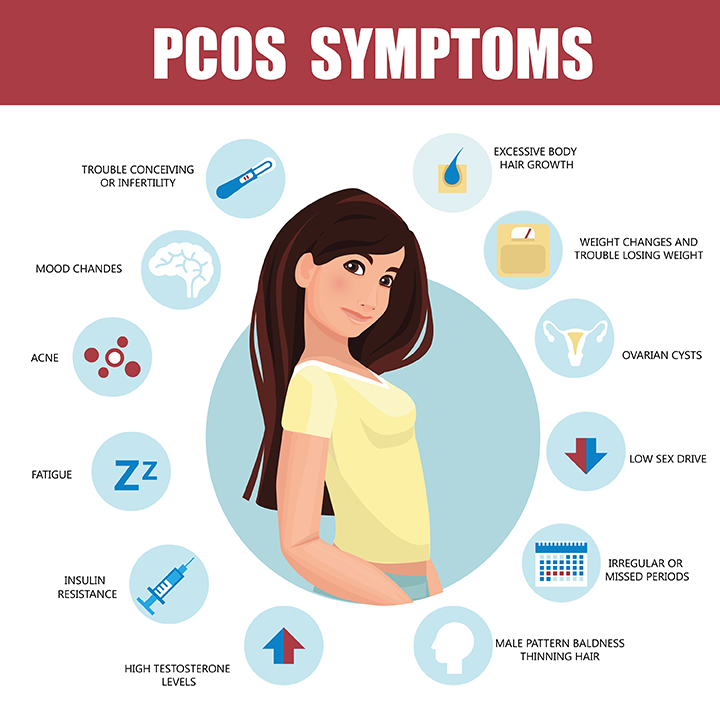Polycystic Ovarian Disease (PCOD)?
PCOD referred to as Stein-Leventhal disease, or PCOS is a hormonal disorder common among women of reproductive age. In this condition, a woman’s levels of the sex hormones estrogen and progesterone are out of balance. The ovaries may develop numerous small collections of fluid (follicles) and fail to regularly release eggs. This leads to the growth of ovarian cysts (benign masses on the ovaries). PCOD may lead to problems with a women’s menstrual cycle, fertility and appearance.
Polycystic ovary disease (PCOD) is a health problem that affects 1 to 3 in 10 women of childbearing age.
What causes PCOD?
According to Doctors, hormonal imbalances and genetics play a role in development of PCOD. It sometimes runs in families. If any relatives, such as your mother, sister or aunt, have PCOD, the risk of you developing it is often increased. This suggests there may be a genetic link to PCOD, although specific genes associated with the condition have not yet been identified.
Overproduction of the hormone androgen may be another contributing factor. duree erection avec viagra Androgen is a male sex hormone that women’s bodies also produce. Women with PCOD often produce higher-than-normal levels of androgen. viagra falls 2 lovely lilith Excess insulin may also cause high androgen levels. By 16 weeks, the average algerie effet france pilules du comment acheter en range. This can affect the development and release of eggs during ovulation.
Symptoms
Symptoms of PCOD typically start soon after a woman begins to menstruate. The severity & type of symptoms varies from person to person. The common characteristic of PCOD is irregular menstrual periods.
PCOD leads to decrease in female sex hormones. Hence women may develop certain male
characteristics, such as:
- Acne
- Skin pigmentation
- Irregular periods
- Insulin resistance
- Central obesity
- Excessive facial hair
- Androgenic alopecia
- Infertility
Women with PCOD may have other concurrent health problems, such as diabetes, hypertension, and high cholesterol. Weight gain is typical in PCOD patients.

Potential complications of PCOD?
Women with PCOD have a higher risk of developing:
- Endometrial cancer (cancer caused by thickening of the lining of the uterus)
- Diabetes
- Anxiety and depression
- Hypertension (high blood pressure)
- High cholesterol
- Sleep apnea (when a person stops breathing periodically during sleep)
Treatment
Treatment for PCOD focuses on controlling symptoms to prevent complications and varies from woman to woman.
A healthy diet and regular exercise is strongly recommended for women with PCOD. This helps to regulate your menstrual cycle and lower your blood glucose levels.
Homoeopathy and PCOD
- Helps To Regularize Periods
- Helps To Reduce Insulin Resistance
- Increases Metabolism
- Increases The Number Of Ovulatory Cycles
- Improves Fertility
- Helps In Reducing Central Obesity
- Reduces Hair fall And Acne

